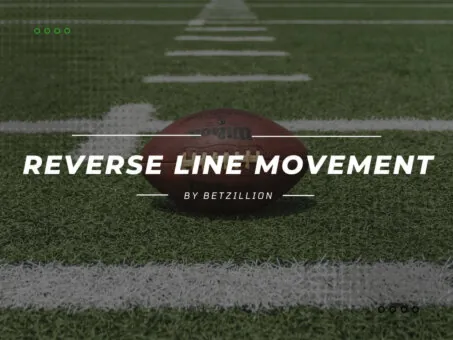Sports Betting Systems

If it doesn’t, or you don’t like it, don’t worry – there are dozens to pick from and become a more successful bettor.
Common Sports Betting Systems
There are plenty of standard betting systems you may have even heard of. For example, the Martingale and the Oscar’s Grind betting system are popular in roulette. It can also be applied on accumulator bets and in many sports wagering markets, whether American football or horse racing.
All the betting systems can be divided into negative and positive progressive systems. Let’s see what each one represents.
Negative Progressions System
Negative betting systems revolve around wagering more units on each loss. It allows you to compensate for previous losses and always come out on top. Of course, this idea has a problem – losing streaks can be costly if it doesn’t work. These systems work best for bettors with a large bankroll who aren’t afraid to wager big.
The most common negative progressive betting systems are Martingale, Labouchere, and d’Alembert.
Positive Progression System
Contrary to negative progression betting systems, positive ones work the other way around. In the simplest terms, you increase your betting units after wins. Losing streaks can be costly, and recouping your losses doesn’t happen quickly.
This system is also more suitable for high rollers as it requires you to place sizable wagers at specific points. The popular positive progression systems include the Paroli and parlays standard in sports betting.
Martingale System
If you’ve ever played roulette or read about strategies for the wheel, you’ve undoubtedly come across the Martingale system. It’s one of the most popular systems for roulette, but with the right approach, it can be tailored to sports betting. It is such a proven sports betting system that it looks perfect on paper.
With it, you double your bets after a loss until you win. It’s a negative progression system where you wager one unit on a win and double it after a loss.
To put things into perspective, let’s see an example with one betting unit:
- You wager $2 on a match-winner and lose
- The next bet is $4 (doubling after a loss)
- If that one loses, too, your next stake is $8
- You win that one and set the $8 aside
- Continue following the process until you recoup the lost funds
The problem with the Martingale betting system is that it’s the poster boy of the gambler’s fallacy. If you string several losses in a row, you will lose a lot of money. Some bettors believe that if they lose 3-4 bets in succession, the next one is a win. That rarely happens as the outcome of sports betting is random, pushing you deeper into the pit.
While it can be a winning system for those with deep pockets, it doesn’t always offer consistent profit. No strategy does that, and it would be a lie to claim that the Martingale does.
D’alembert Betting Theory
Another popular online betting system on roulette, D’alembert, is similar to Martingale. They’re both negative progression systems, but the progression goes slower than its sibling this time.
Where the Martingale asks you to double your bet after a loss, the D’alembert system requires you to up the wager by a unit. For example, if you bet $2 at the start and lose it, your next bet is $4. The stake on the next loss is $6, then $8… You get the picture – one unit more (considering a unit is $2).
After each win, you decrease the wager to a unitless one. Like all negative progressive betting systems, this one also requires deep pockets. While simple, it doesn’t protect players from a losing streak and can often cost those with a limited bankroll too much.
Labouchere System
Developed by big roulette fan Henry Labouchere, this system is known as the cancellation theory. It’s a bit more complex than the others and works in sports betting as well as on roulette. Before using it, you must decide how much money you want to win. For example, it can be $20, $50, or more. Now, you break down that amount and write a list of positive numbers that sum up to it.
Using the Labouchere system, you stake an amount equal to the first and last number on the list with each bet. If there’s only one number remaining, that’s the wager. If your bets win, the 2 numbers are crossed off the list. If you lose your bet, add the amount lost to the end of the list.
It is yet another system suitable for those with a large bankroll. The line can go on infinitely if you lose most of the time; sooner or later, the system will become too costly.
Paroli Formula
The Paroli online betting system is a positive progression formula that requires players to double their wager after each win until they hit 3 in a row. It’s one of the oldest betting systems, used as early as the XVI century. You start by betting one unit on an even money outcome to use it. If you lose, you bet another unit. If you win, you wager 2.
You continue betting double after wins until you hit 3 in a row. The only problem with this system is that it’s hard to hit 3 successful bets in sports betting, let alone do it all the time. If everything is streaking your way, it will be successful. However, it’s not the most precise or reliable betting system, so it won’t always work in your favour.
Parlay System
The parlay is one of the most profitable sports betting systems, but not without flaws. Often called ‘let it ride,’ it requires players to increase their wager after a win, including the original betting unit and the winnings. The goal is to build a pyramid of winnings that will eventually cover most of your losses.
Of course, betting the original unit and the winnings means you can lose it all in one sweep. It’s a risky betting system that few are comfortable with unless they’re willing to put all their money at risk.
Insurance System
Now here’s a system that more or less guarantees your success. It reduces the risk associated with the best sports betting systems by requiring you to minimize the wager amount after losses. Essentially, it’s a system that safeguards you from going bankrupt by not asking you to double your bet after losses.
Of course, you still need a backup plan, as things can go awry if you lose too many times.
Fibonacci System
You know the all-important Fibonacci sequence, right? Science has found it all over in nature, and many bettors make it a central part of their betting systems. It is a negative progression system that follows a unique sequence of numbers.
It starts with a zero and a one for your first 2 bets. The following numbers in the sequence are the sum of the 2 previous ones. As you can guess, it can get pretty costly and requires a large bankroll if your losses accumulate.
The Unit System
We mentioned betting units several times in this guide. While most bettors are familiar with these units, new punters might be confused. The easiest way to describe a betting unit is 1% of your bankroll. So, for example, if your bankroll is $100, one gambling unit would be $1. It’s usually $2, so if a betting system requires you to wager one or 2 units in this case, it would mean betting $2 or $4.
How to Develop Your Betting System?
All bettors have used sports betting systems that work. Well, at least apparently. Each bettor approaches their bets with a system that has worked in the past. Some like the Martingale, others bet the Fibonacci. To develop your betting systems, you’ll first need to try them all.
If you’re innovative, you can take the best elements of several systems and create a new one that will be your legacy. Free betting systems are also available online – you can try them all for small bets and practice a bit before developing your own.
Which Sports Betting System Works the Best?
That depends entirely on you. No single system beats the bookies all the time – that’s impossible. However, many you can try yourself and see if they fit your wants and needs.
That’s the beauty of online sports betting. All these systems are free and easy to use, so you only need to try them in different markets and find the one you prefer.
Frequently Asked Questions
-
What is the most profitable betting system?Every online betting system can be profitable when it works. We strongly suggest betting the bare minimum when trying one, as they can be costly.
-
How does a betting system work?A betting system is a set of events that should lead to a profitable scenario. It requires you to use specific betting units after losses or wins to raise your profits or minimize losses.
-
What are the types of betting systems?There are 2 types of betting systems – positive and negative progression systems. The former requires you to raise bets after a win, while negative progressive betting systems do the opposite – you raise wagers after losses.
-
Still have questions?
Ask our experts
Related articles
Pari-Mutuel Betting Explained
Action and No Action in Sports Betting




